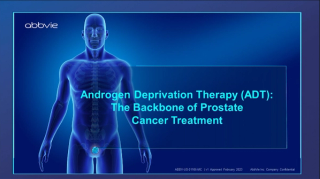
Prostate Cancer
Latest News
Latest Videos

CME Content
More News
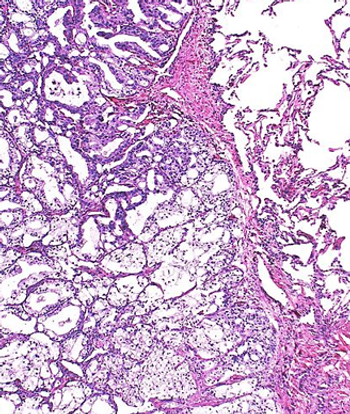
Subgroup analyses in the phase 3 KEYNOTE-641 trial do not indicate an overall survival improvement with pembrolizumab plus enzalutamide in metastatic castration-resistant prostate cancer.
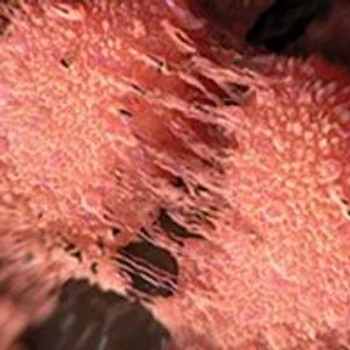
Findings from the ENZA-p study provide evidence for enhanced anti-cancer effects with 177Lu-PSMA-617 plus enzalutamide in patients with metastatic castration-resistant prostate cancer.
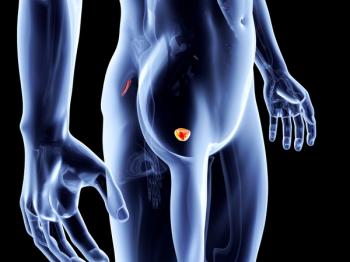
Findings from a meta-analysis highlight the effect of varying censorship criteria for the definition of surrogate end points in localized prostate cancer randomized clinical trials.

Germline testing may elucidate important mutations in patients with metastatic prostate cancer who may be eligible to receive treatment with PARP inhibitors, according to Neeraj Agarwal, MD.

Over half of all patients with small cell neuroendocrine prostate cancer treated with BXCL701 and pembrolizumab were alive at 1 year in a phase 2 trial.

In this September edition of Snap Recap, we share our highlights from Prostate Cancer Awareness Month, news in the breast cancer space, and the latest FDA updates.

Artificial intelligence programs may help introduce new care strategies that minimize the risk of adverse effects in patients with prostate cancer, according to Wayne G. Brisbane, MD.

An artificial intelligence algorithm appears to create accurate focal treatment margins in patients with prostate cancer, according to Wayne G. Brisbane, MD.

Artificial intelligence may be useful in screening for prostate cancer in patients with elevated prostate specific antigen levels who have undergone MRI, according to Wayne G. Brisbane, MD.

Across several clinical trials, Unfold AI appears to help in prostate cancer treatment selection and follow-up.

Jonathan Leeman, MD, indicates that the longer-follow is necessary to confirm late toxicities and disease control associated with adaptive radiotherapy in patients with prostate cancer.
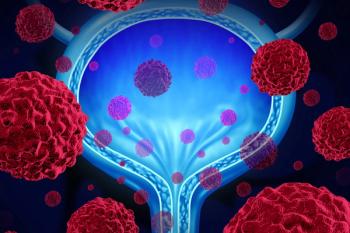
The FDA sets a Prescription Drug User Fee Act date in the fourth quarter of 2023 for its decision regarding enzalutamide as a treatment for those with non-metastatic hormone-sensitive prostate cancer with a high-risk of biochemical recurrence.
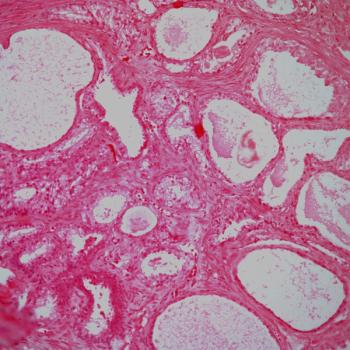
Combination treatment with cabozantinib and atezolizumab did not produce any new safety signals in the treatment of those with metastatic castration-resistant prostate cancer in the phase 3 CONTACT-02 trial.

The FDA companion diagnostic designation for FoundationOne CDx may improve access to treatment with niraparib/abiraterone acetate dual action tablets in those with metastatic castration-resistant prostate cancer harboring a BRCA mutation.

The first and only dual action tablet, niraparib and abiraterone acetate, is now available for use in patients with BRCA-positive, metastatic castration-resistant prostate cancer following its approval by the FDA.

Investigators of a retrospective study report that an AI deep learning model may also predict negative margin probabilities better than conventional modalities.
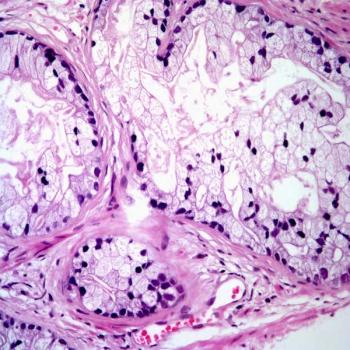
Incorporating PSMA PET into pre-surgical risk assessment may help urologists determine whether surgery should be performed on patients with advanced prostate cancer, according to Loïc Djaïleb, MD, PhD.

Experts review current treatments for metastatic castration-sensitive prostate cancer, centering their discussion around a patient case.

Flotufolastat F 18 is indicated for use in imaging PSMA-positive prostate cancer lesions in patients who are likely to have metastatic disease and may be able to undergo initial definitive therapy, as well as those who may have recurrent disease.

The investigational antibody-drug conjugate ARX517 is currently under evaluation in patients with metastatic castration-resistant prostate cancer as part of the phase 1/2 APEX-01 trial.

18F-rhPSMA-7.3 was approved by the FDA for the detection of PSMA-positive lesions during PET/CT imaging in prostate cancer.

Greater age may be an additional risk factor for fatigue among patients with prostate cancer receiving second generation antiandrogen agents, according to a recent systematic review.

Alicia K. Morgans, MD, MPH, from Dana-Farber Cancer Institute indicates that patients with non-metastatic castration-resistant prostate cancer are able to stay on treatment for long periods of time with darolutamide vs enzalutamide and apalutamide.

Patients with HRR-mutant metastatic castration-resistant prostate cancer can now receive treatment with talazoparib and enzalutamide following the regimen’s approval by the FDA.

Talazoparib plus enzalutamide appears to improve the objective response rate vs enzalutamide plus placebo among patients with metastatic castration-resistant prostate cancer harboring homologous recombination repair mutations in the phase 3 TALAPRO-2 study.









































